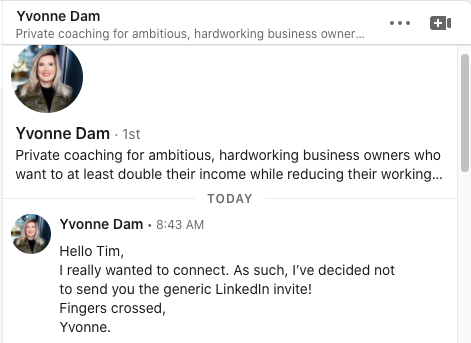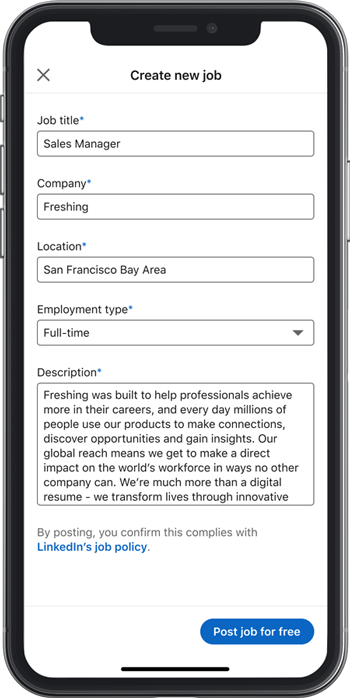I think about 99.99% of us believe that we actually put a man on the moon! We have put together technology to take someone on earth and put them on the moon, and then actually get them back to earth! That is amazing. Do you know what we haven’t figured out?! One system to help college kids connect with employers to get jobs!!! UGH!!!!
Why hasn’t recruiting technology solved this issue?
Okay, don’t start with me on Handshake or LinkedIn or Yello or Brazen or whatever dumb tech that says it’s for college recruiting but doesn’t really work for every college or every student.
First, shout out to my guy John Hill, former Campus Evangelist for LinkedIn, who is now with TechStars. Six years ago this man figured out how LinkedIn could have owned this space, but they weren’t interested. They walked away from owning every single professional at the beginning of their career. It could have been so easy for us all. One platform under God, indivisible, and all that sh*t. John, you are a genius, and I so badly wanted you to succeed with that idea!
If you want to hire an upcoming college grad for a job you have, it’s a freaking nightmare, mostly. First off, you have to find out from each college/university who they actually work with and to which platform are they sending their kids. Handshake is the big one, but not everyone works with them, and as an employer, they are kind of difficult to work with (I’ll explain later). LinkedIn is the easiest to work with. Yello and Brazen, and others like them, are more event and campus management, than a database of students.
The reality is, employers just want a database of students! We want to log in, pay whatever fee you ask, and search by the university, year, major, location, etc. We are simple people with simple needs. Why can’t we have our simple tech!?!
Why doesn’t one technology own the college recruiting space?
First, it’s not really a technology problem. It’s an empire-building and power play by university career services offices. Let’s do some history. Old school career services ran “Job Fairs”. You came to campus, paid them money, and ran the dog and pony show. It was awful. Everyone hated it. Except for the Career Services employees. This was their singular job and how they proved their value to the powers that be.
The future came and employers and students were like, “Job Fairs Suck!” and why can’t we just put up a profile on LinkedIn or something like LinkedIn and connect with employers that way? Well, you can’t because then we (the Career Services) lose power! You have to join the platform we tell you, so we can still get paid because while you paid us way too much for your education, we still need to make more money on you and your hard work!
Is all of this sound familiar and accurate?!
Before “Karen” or “Ken” from Career Services at State U. loses her/his mind, let me just say, I get it. I know of many career services folks who truly want to help the Art History majors of the world get employed. Which they never succeed at, but keep helping those MBA’s and Engineers find a job…
Can I be real for a minute? in 2021, do we really think the function of “Career Services” at a university is necessary? If a kid can’t figure out how to get on Handshake, or LinkedIn and Indeed, shouldn’t that be kind of a sign of their employability?! I just hear from too many students that feel like Career Services did nothing for them in finding a career. In fact, that’s all I hear. I can’t remember ever hearing one story from a new grad going, “OMG! Career Services at State U. was so amazing and helpful!” Not once, in twenty-five years!
My Experience with Handshake
Recently, I was hiring a couple of recruiters for my team. We have had great success hiring new grads, we have a great university (Michigan State) in our backyard, so I was like how do we post a job for MSU students to see. Handshake has entered the chat.
The MSU Career folks said get on Handshake it’s easy! Which was mostly true, any idiot can figure out how to get on a site and register themselves. But using Handshake to recruit becomes a different story. First, we are a “recruiting agency” so right off the bat Handshake hates us. Plus, Handshake works off of a “Trust” score to get schools to work with you, which seems super fishy!
I wanted to hire someone directly for my company, not a client. We are a good employer. Good culture. Good pay. Local. Etc. Doesn’t matter, our “Trust Score” is low. How do we increase this Trust Score, I asked? Go to this one page and read a bunch of stuff that won’t help you at all! That is all. Can I just pay you some money and we stop this nonsense?!
The way it’s supposed to work is I have to reach out to a school and ask to be able to post a job and have access to their students. But the schools don’t know one employer from the next, so they rely on this “Trust Score” but no matter what you do, your score doesn’t really move that much. I’m assuming it would move if I paid them money, but that was the one thing I didn’t try!
I actually had local schools reply back and said because of your trust score we have a policy not to post your job! This is particularly hard for small employers who don’t have much activity. Thankfully, most schools would let you in if you made a personal plea and explained the issue. Still, this is a pain in the butt! This isn’t a good experience for anyone involved, the employer, the schools, or the students trying to get jobs.
Don’t take this as a slam on Handshake, it’s not! At least they are attempting to build something that is better than showing up on 500 campuses and doing traditional job fairs! The biggest problem is they left the Career Services still in charge! (BTW – I reached out to Handshake to try and get some help with this, I’m kind of in the space! No one would help, besides sending me to the same lame talking points on how to increase your trust score.)
There has to be a better way!
You would think because of the pandemic someone would have figured this out, and I’m sure even the folks at Handshake could figure this out if they had willing participants at the college and university levels. I’m still a bit salty that LinkedIn just didn’t do this because I’m guessing they had the size to just roll over career services and actually make something that works great for both students and employers.
The reality is employers are trying to recruit like it’s the 2000’s. Students are trying to get jobs like it’s the 2000’s. University and colleges are still trying to help like it’s 1970, and the technology companies are trying to find some sort of weird middle ground to keep them happy, but at least give students and employers something to work with.
Well, it doesn’t work. It sucks.
We (the recruiting industry overall) should be better than this. University and college career services should be better than this. We should have one global database for graduates and upcoming graduates to see all the jobs and internships, and for employers to see all the potential student candidates, and allow them to interact.
Instead, we play this game of who has the power, and who wants to make money on whom, and in the end, the students and employers are the ones paying the price.
Is there a way out of this mess?
I think the only way out of this mess is for students to recognize one brand as the place to go. The problem is, they don’t. If you talk to most university students about where they should go find a job, the answers are all over the board, and they mostly take direction from those at the university who are paid to help them.
A brand like Google or Apple might be able to break through the noise and stop all of this mess, but they are like any other company, there just isn’t enough money in it. I do think 100% of organizations would pay to have access to something like this if it was all-inclusive. Get every single public and private college to put in their students, give them a cut of the money based on being a part of the system, and everyone is happy.
I have yet to speak to one corporation’s Campus TA team who thinks the current situation is good. It’s a giant sh*t show, and university Presidents and Boards have no idea how bad it is.
Okay, rant over, that’s as long as a chapter in a book. Thanks for attending my Ted Talk. Now Fix the Damn Thang!



